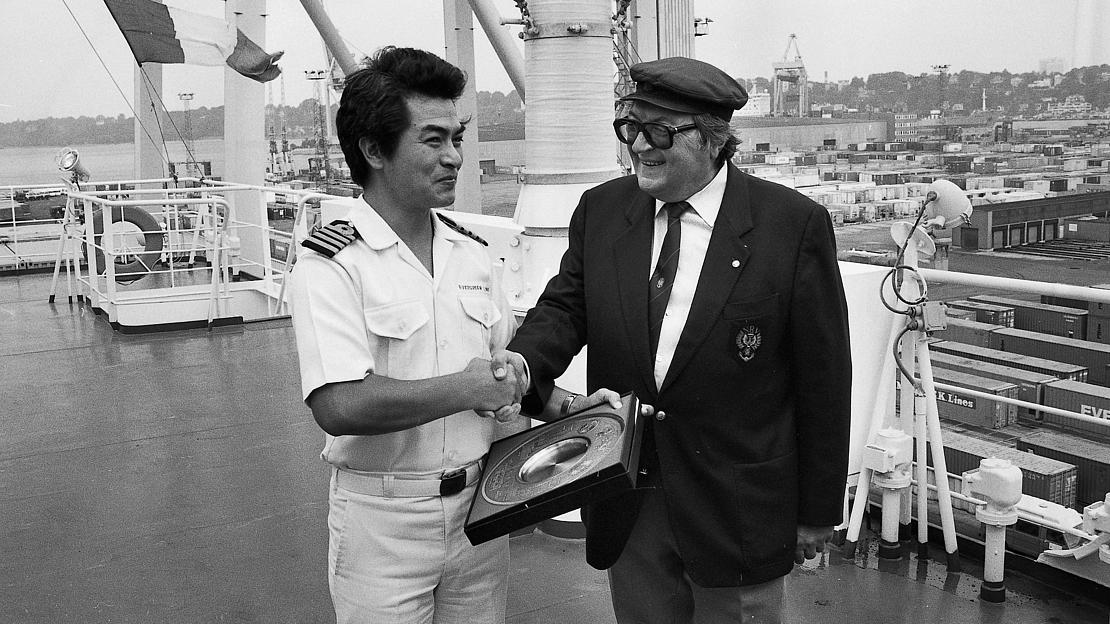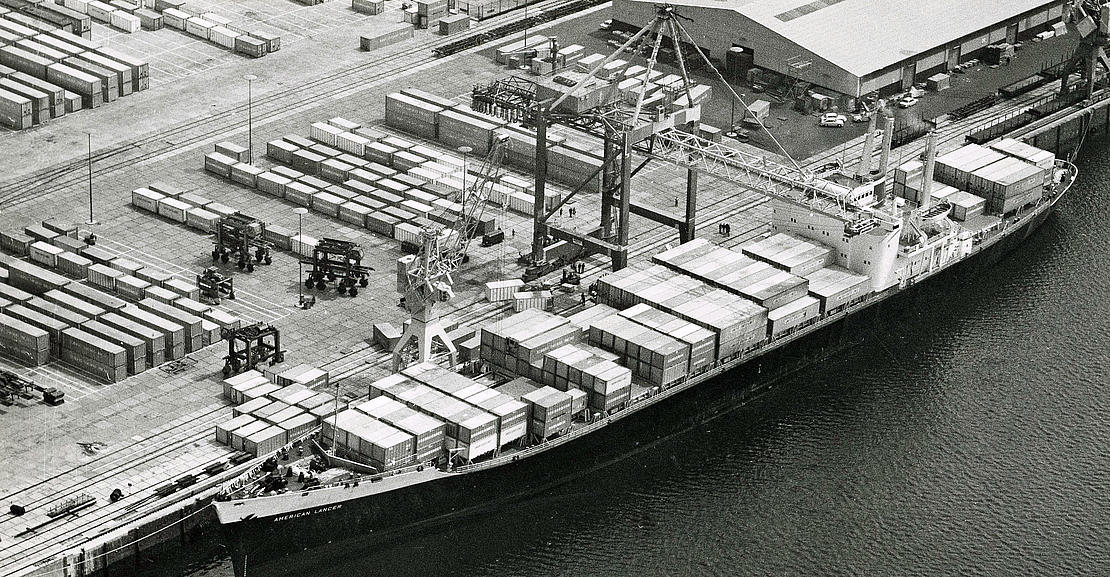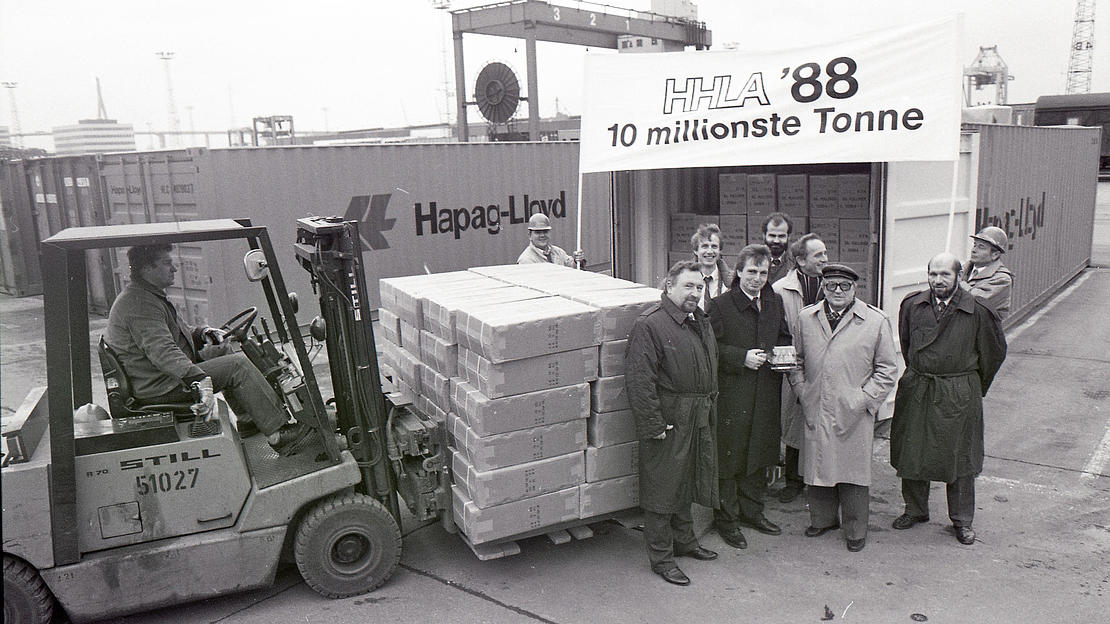
“If we don’t build this terminal, we’re not going to get containers coming to Hamburg!” This is how Helmuth Kern, then the Senator for Economic Affairs for the SPD (Social Democratic Party of Germany) and later Chief Executive Officer of HHLA, appealed to the First Mayor of the City of Hamburg, Herbert Weichmann. But what happened?
Kern, whose remit included the port and transport logistics, was following a vision. In his view, the new containers that started coming to Europe from the USA in the 1960s would be a gamechanger for the entire shipping industry. That’s why he stood before the Hamburg Senate in 1967 and passionately argued for the expansion of the city’s Burchardkai to create a container terminal. The whole project was to require 35 million Deutschmarks, a handsome sum for the time.
The First Mayor was a little less enthusiastic: “Mr Kern, you want 35 million marks for this. You have neither a shipping line, nor a shipping company contract, nor a container. And the Senate is supposed to build a container terminal?”

If we don’t build this terminal, we’re not going to get containers coming to Hamburg!
The response quoted above, where Kern then persuaded the First Mayor, has now gone down in history for the Port of Hamburg. The container terminal was built and HHLA won United States Lines as a client. By autumn 1968, four to five fully containerised ships were already arriving at Burchardkai every week.

But anyone who believes that Helmuth Kern was only responsible for this, admittedly extremely important, change of course for Hamburg and Germany does him an injustice. The dedicated Hanseatic citizen Helmuth Kern was born in the Hanseatic City of Hamburg on 4 December 1926. School and Abitur school-leaving qualification: in Hamburg. Studies: in Hamburg (and Heidelberg). Career: in Hamburg companies. Political office: first in the Hamburg Parliament and, from April 1966 in the Hamburg Senate.
Numerous buildings and projects in Hamburg are testament to Helmuth Kern’s legacy as a Senator for Economic Affairs. These include the Congress Centrum Hamburg (CCH), the Köhlbrand Bridge and various structures and buildings in the port, such as the major ore and coal port Hansaport and the integration of Altenwerder into the port extension area.
But that wasn’t enough for him: The implementation of the Hamburger Verkehrsverbund (public transport association), the Hamburger Stahlwerke (Hamburg steelworks), the Hamburger Aluminiumwerke (Hamburg aluminium works), the Beiersdorf plant in Hamburg-Harburg and the Philips plant in Rahlstedt all arose through Kern’s initiative or with his assistance.

After 25 years in the Parliament and ten years as a Minister, Kern became Head of HHLA’s Executive Board on 1 May 1976. He remained at the helm for 15 years, so closely connected with the success of the Port of Hamburg, and continued to shape HHLA’s future as a strong Group despite the turbulence of the era.
Electronic data processing was introduced during his time with HHLA – the basis for digital container logistics. With his “Elbe politics”, Kern created links with Central and Eastern Europe. They would prove to be immensely valuable to HHLA when it was able to start tapping into this hinterland extensively and quickly after the fall of the Iron Curtain.
Helmuth Kern died in the night from 8 to 9 December 2016. His name will forever be associated with Hamburg, the port and HHLA. After all, he is the man that brought containers to Hamburg. In the right place at the right time.